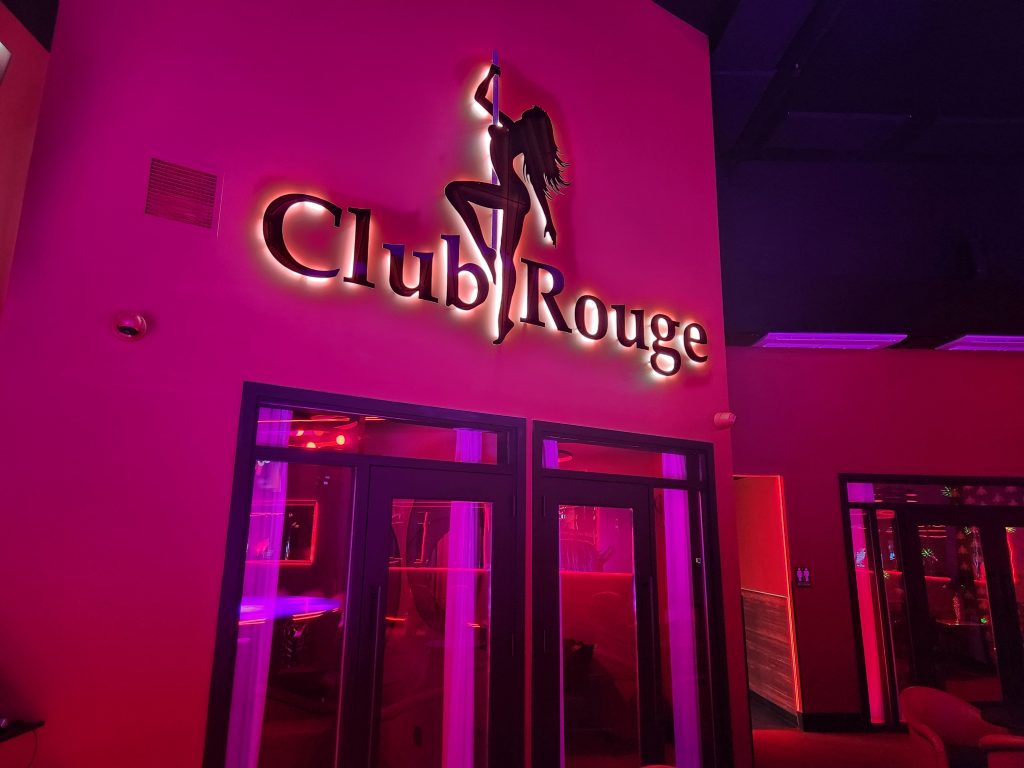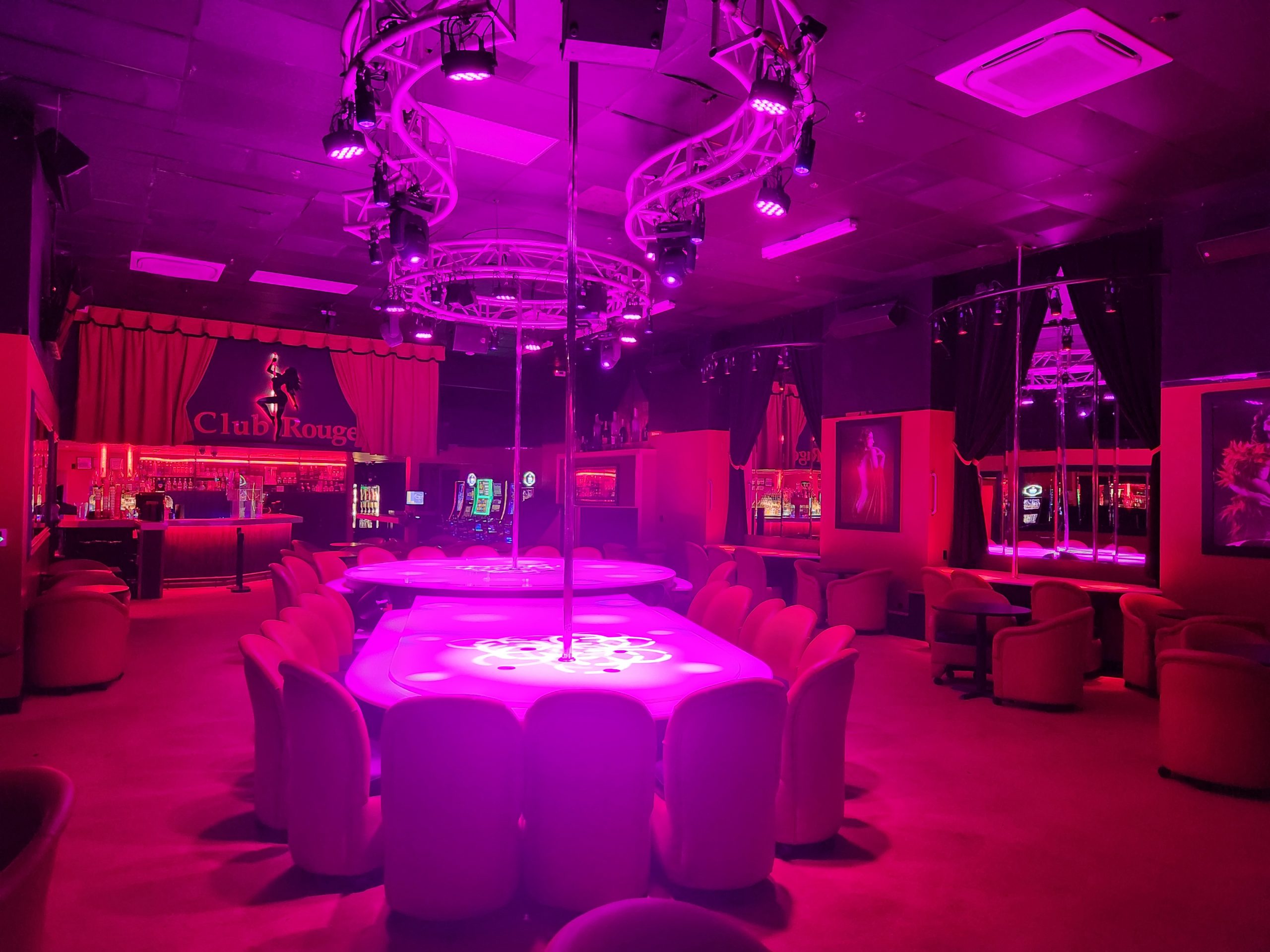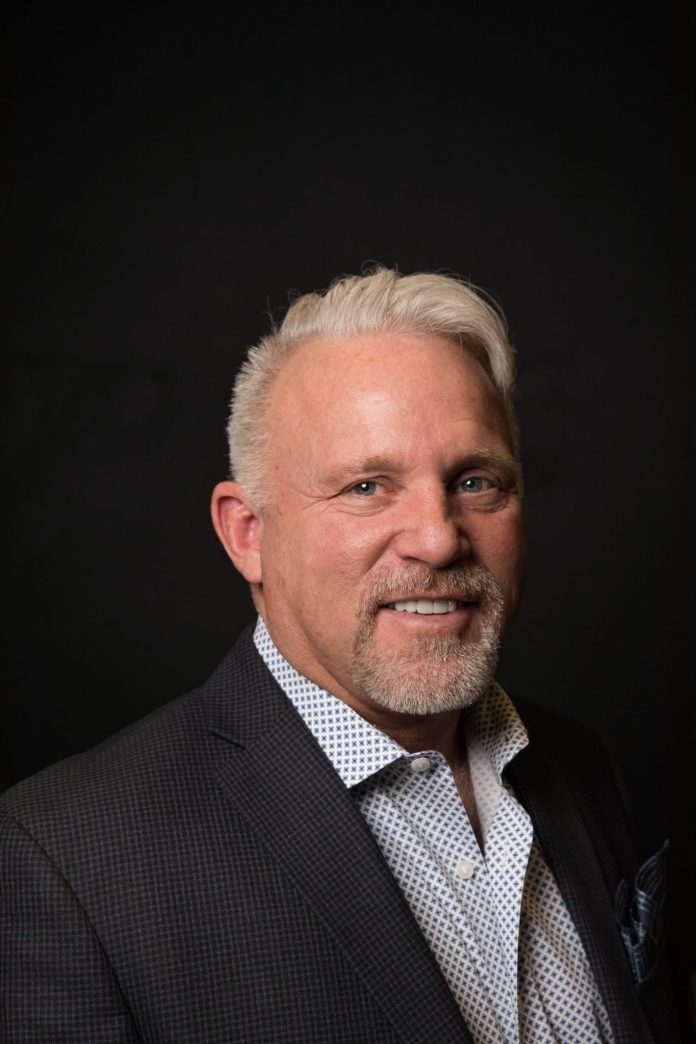(Note: This story appears in the May 2023 issue of ED Magazine)
Raised by an adult-nightclub-owning family, Oregon Regional Manager Andy Wallock makes a home of the clubs he now manages, unifying his teams toward common goals.
C
onsolidated Clubs Oregon Regional Manager Andy Wallock was, quite literally, raised in the adult nightclub industry. Wallock’s parents owned a juice club in the Seattle suburb of Bothell and, as a kid, he swept the parking lot to earn cash. Once he turned 18, Wallock began bartending and collecting cover. He worked his way up through the ranks and learned everything there was to know. Eventually, the family brought him into clubs in Seattle, then in Portland.
ED Legal Correspondent Larry Kaplan spoke with Wallock about changing the game in Portland, mentoring employees and teamwork as the key to success.
ED: Besides Washington and Portland, where else have you worked?
WALLOCK: I spent 12 years working at liquor clubs in the Phoenix area. I started at Christie’s Cabaret, where I learned more about high-end clubs and the liquor industry. I helped open a few different clubs there. It laid a solid foundation for me to work in high-end liquor clubs.
ED: How did you get started with Consolidated?
WALLOCK: My folks sold their Seattle clubs to Consolidated, and when that happened, I moved to Idaho and worked with a club that my folks had there. In 1991, I came back to Seattle and worked with Consolidated. After four years, I decided I wanted a change and took off to Arizona. I worked for several people there. I helped open a new Christie’s Cabaret club in Tempe. That club is still up and running. In 2010, Roger Forbes recruited me to return to Washington to work with Consolidated’s Seattle clubs.
ED: You now oversee Consolidated’s two Oregon clubs. Tell me about those clubs.
WALLOCK: They’re Consolidated’s only two alcohol clubs. The Portland location was an older building right in the middle of downtown. When Consolidated bought it, the interior was basically just a square block with red paint from the baseboards to the high ceilings and bathtub-type stages. It was rough. So we started doing some upgrades. It was a slow roll, and we ramped it up as we began doing well. It’s very different now from when we took over, and today, it’s the area’s number one gentlemen’s club.
The Beaverton location only opened recently and has a similar layout. It feels newer and more modern inside than Portland. Both clubs cater to upscale clientele. We’ve marketed ourselves as a champagne club, and the entertainers and staff are held to a certain standard. We focus on providing quality customer service and an outstanding experience. I tell our staff it doesn’t cost us anything to step up our game and give everybody good service. That’s the best raise you can give yourself. Give good customer service and earn better tips off of that. It’s better than any raise I can provide.
And teamwork is critical. You must all work towards the common goal, and everyone must understand what that goal is. When we started in Oregon, I walked into the club alone, not knowing anybody. I had a raw group of existing staff who didn’t know the vision or what I wanted to do there. A handful of them were willing to jump on my wagon, while another handful was rebelling against me. I didn’t do this singlehandedly; it was teamwork that got everything going. It took everybody to make things happen.
I like to look at people I’m training or bringing on board. We hire and coach them in the club, and then they get to a point where they’re managing. It’s nice to look back and think, I was a part of that success. To me, that’s a feather in my cap; I like that. I think more people should strive to be a part of that process.

ED: When you first saw that Portland club, it was very raw. Did you have an immediate vision of what you wanted it to be?
WALLOCK: I kind of did, but then as time went on, you see different visions and realize, ‘This works better here, maybe we switch that over there. How much money can we get out of every square inch?’ So you start thinking that way, and it kind of puts itself together, for the most part.
After working in Phoenix, I decided that when people walk into an upscale place like this, you’ve got to have pretty entertainers and the right staff to ensure they feel like, ‘Wow, this is an excellent place, I’m going to have to spend some money here.’ That’s kind of where my brain was in the beginning. I looked at the building and thought, ‘This has great bones; we could do something here.’ And that was what I asked Roger initially: ‘What kind of club do you want to open? Are you willing to spend some money?’ I always ask people that, because they often say, ‘I just want to make lots of money.’ By building an upscale champagne club like Rouge Portland, the sky’s the limit; you have more opportunities to make big money. But if you’re putting a cap on your spending, you can only go so far. Roger was willing to spend for the right things.
ED: How long did it take to get to the point where you felt like the club was, if not complete, basically there?
WALLOCK: We’ve had it for nine years now. We were making good money after the first year. But I’d say a couple of years in, our staff was on point, hitting on all cylinders, we had great-looking entertainers, and the customer service was getting better and better. The club was often so packed you had to turn sideways to walk through the aisle. So I started telling everybody, ‘You don’t see this very often; soak this up because you probably won’t see this again.’ It was pretty magical. It was fun to go to work because there was such great energy and positivity. It’s still great, but COVID has taken its toll on us.

ED: How does the club market in Portland today compare to when you arrived?
WALLOCK: It hasn’t changed other than our clubs. We sell more champagne than anybody in the city. Some clubs have tried to copy us by putting people in nice uniforms and selling champagne. I think the more clubs that are providing a classier environment helps, across the board. There are still a lot of mom-and-pop clubs; I think we’ll always have that. Portland’s very welcoming to the adult industry.
ED: You’ve worked in Washington, Oregon, Idaho and Arizona. How have you seen the industry evolve since you started? Do you think it’s gotten better or worse? How is it different today?
“Enjoy your job. If you look like you’re having fun and want to be there, that’ll be the standard. Hire personality; people that want to be part of your team and help you make that difference. And make sure your staff and entertainers know you sincerely care about them, want them there, and are all part of a team.”
– Andy Wallock
WALLOCK: This used to be a very simple business. And now, everybody’s got their hand in the pot; everybody wants to have a say and make a buck off of us. You need attorneys on retainer, because it seems somebody is always after us. I’d love to abandon POS systems and return to old Casio cash registers for simplicity. I’m not a big computer person, I just have to surround myself with good people. While the money is more significant now, it’s evolved in ways that make it more difficult. It’s harder to find good people and make the fun happen than it used to be. People aren’t afraid to be seen walking into adult clubs these days, so that’s helpful.
ED: What’s the best part of your job? And what’s the most challenging part?
WALLOCK: There’s something new, different and exciting every day and night. When everyone’s having a good time, I’m having a good time. When staff and entertainers are making money, have smiles on their faces and are glad to be there, it’s a good feeling. Maintaining all that daily with obstacles like always keeping people safe is most challenging.
ED: You worked for Consolidated founder Roger Forbes for quite a while before his recent retirement. What skill have you acquired or refined working with Roger that has helped you become better at overseeing operations?
WALLOCK: It’s time management when managing multiple locations. Before moving to Oregon, I oversaw multiple Washington State Consolidated clubs, which is far more than I did in Arizona. By necessity, the experience taught me better time management and understanding of how to manage situations when you can’t always be on-premises.
ED: If you had other clubs’ GMs and operations managers in a room and could share some advice, what would you like to tell them?
WALLOCK: Enjoy your job. If you look like you’re having fun and want to be there, that’ll be the standard. Hire personality; people that want to be part of your team and help you make that difference. And make sure your staff and entertainers know you sincerely care about them, want them there, and are all part of a team. I always say we’re family away from family because they probably spend more time together at work than with their families. Have a good time, and make sure everyone else has a good time and leaves with a smile. The last impression should be even better than the first impression.
Larry Kaplan has for 22 years been the Legal Correspondent for ED Publications. In addition, Mr. Kaplan is a business broker in the sale and purchase of adult nightclubs and adult retail stores and the Executive Director of the ACE of Michigan adult nightclub state trade association. Contact Larry Kaplan: at 313-815-3311 or email larry@kaplanclubsales.com.





























